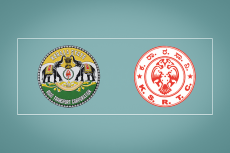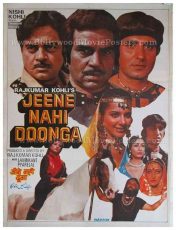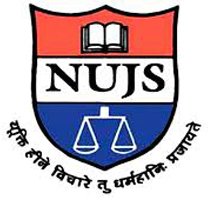Topical Highlight
Kerala and Karnataka Tussle Over the ‘KSRTC’ Mark: Registrability, Concurrent Use, and Infringement

KSRTC Logos used by Kerala and Karnataka (Image from here)
Nikhil discussed the recently revived controversy between the states of Karnataka and Kerala regarding the rights over the trademark ‘KSRTC’. He recounts the background of the usage of the mark for the states’ respective State Road Transport Corporations which led to a tussle when Karnataka applied for a registration for the mark and served a notice to Kerala in 2014 stating that they should not use the acronym. Currently, both have the right to use their marks without infringing the other’s. He finds that though the marks are arguable generic or descriptive, they are registrable if they acquire secondary meaning. He then argues that per Section 12 and the judicial principles laid in the regard, the KSRTC mark is likely to qualify for honest concurrent use by both parties. Even if it doesn’t, the registrar has discretionary power to allow the same in ‘other special circumstances’. If concurrent use isn’t permitted, although Karnataka’s use of the mark would prima facie amount to infringement it is likely to be exempted under Section 30(2)(a) as the mark describes the geographical origin of the services. He concludes that in these peculiar circumstances, arguments for exclusive rights are equally applicable from either side, opining that it is best that concurrent use be permitted due to the public service nature of the corporations.
Thematic Highlight
Collective Marks: A Tale of Collective Confusion at the Registry

Photograph of Mr. Akshay Ajaykumar
In a guest post, Akshay Ajaykumar highlights that several collective mark applications in India have been erroneously granted collective mark status by the Trademark Registry. He begins by explaining the statutory position of collective marks under Section 2(1)(g), and then recounts the special statutory requirements under Sections 62, 63 and 64 of the Trade Marks Act. He also highlights the rules regarding the application and use of a collective mark under Trade Marks Rules, 2017 and the Draft Manual of Trade Marks. Listing 10 trademarks he has specifically looked into, he argues that 9 of them are erroneous as multiple rules relating to collective mark registration, such as requirement of statement of case, draft regulations, prohibition of ownership by partnerships, among others, have been violated in registering them. He opines that the erroneously granted applications were filed by the Applicants either by mistake or due to a misconception of law, and exist in violation of the statute. He points out that the Registry has power to initiate a suo motu rectification action under Section 57(4) and argues that the Registry should conduct e a proper due diligence to expunge wrongly granted collective mark registrations. Additionally, the Registry should make the Examiners aware of collective marks through training sessions and issue proper guidelines concerning collective marks.
Other Posts
The Daily Guardian Controversy: News, Misinformation, and a Passing Off Perspective

The Daily Guardian Logo (Image from here)
Nikhil also analysed the recent controversy relating to an article in ‘The Daily Guardian’ newspaper, which was shared by multiple politicians before being criticized as a fake news agency trying to pass off as an associate of the prominent British newspaper ‘The Guardian’. He digs deep into the origin and ownership of ‘The Daily Guardian’, which is recently established and based out of UP. In the absence of registered India trademarks held by The Guardian, he examines the possibility of a passing off claim against the paper. Referring to factors noted in Cadila Healthcare, he finds that while there is a phonetic closeness and the nature of the services rendered by both news agencies are the same, it is difficult to determine the class of purchasers in the absence of clear readership data. Additionally, although the number of Indian politicians sharing articles from The Daily Guardian has arguably increased the possibility of reader confusion, proving likelihood of damage remains complicated. Nikhil also argues that the newness of the news agency and the lack of positive acts by The Guardian, accepting the use of this name by the former negate any argument regarding acquiescence of use. He concludes that the viability of a passing off action remains uncertain, but it is necessary for news agencies to be more thorough with their market assessments so that unscrupulous portals could be weeded out in time.
PPL’s Copyright Society Registration Rejected: Delhi High Court Issues Notice, Grants Ad-Interim Stay

Poster of movie, ‘Jeene Nahi Doonga’
Divij reported that the Registrar of Copyrights has rejected the application of Phonographic Performance Limited India (PPL), a major collective rights organisation for sound recordings in India, to be a registered copyright society. PPL has approached the Delhi High Court asking it to direct a reconsideration of the application. Divij recounts the history of PPL’s application for re-registration after the 2012 Copyright amendments, which was withdrawn in 2014 only to have the withdrawal rejected by the Registrar and a subsequent reapplication in 2018. However, in May 2021, the application was rejected on grounds that the 2014 application was withdrawn, and the 2018 application was belated. The present petition in court sought to estop this claim, and to grant an injunction restraining the consideration of other copyright societies’ applications. The court only restrained the government from taking action ‘inconsistent with the position’ that PPL’s application for registration may yet be revived. Interestingly, like PPL, Recorded Music Performance Ltd. describes itself as owning and controlling the public performance rights of its members, has a 2018 application for registration as a copyright society pending which is likely what prompted PPL’s attempt to re-register and ask for the injunction.
Online Conclave on ‘Counterfeiting in Covid Times: Medicines, Medical Devices and Accessories’ [June 12]

WBNUJS Logo
We informed our readers that the National Association to Stop Counterfeiting and Piracy (NASCAP) in Association with DPIIT IPR Chair, The WB National University of Juridical Sciences, Kolkata organised an online conclave on ‘Counterfeiting in Covid Times’ with a focus on ‘Medicines, Medical Devices and Accessories’ on 12th June, 2021. For details, please read the announcement.
Other Developments
Decisions from Indian Courts
Other News